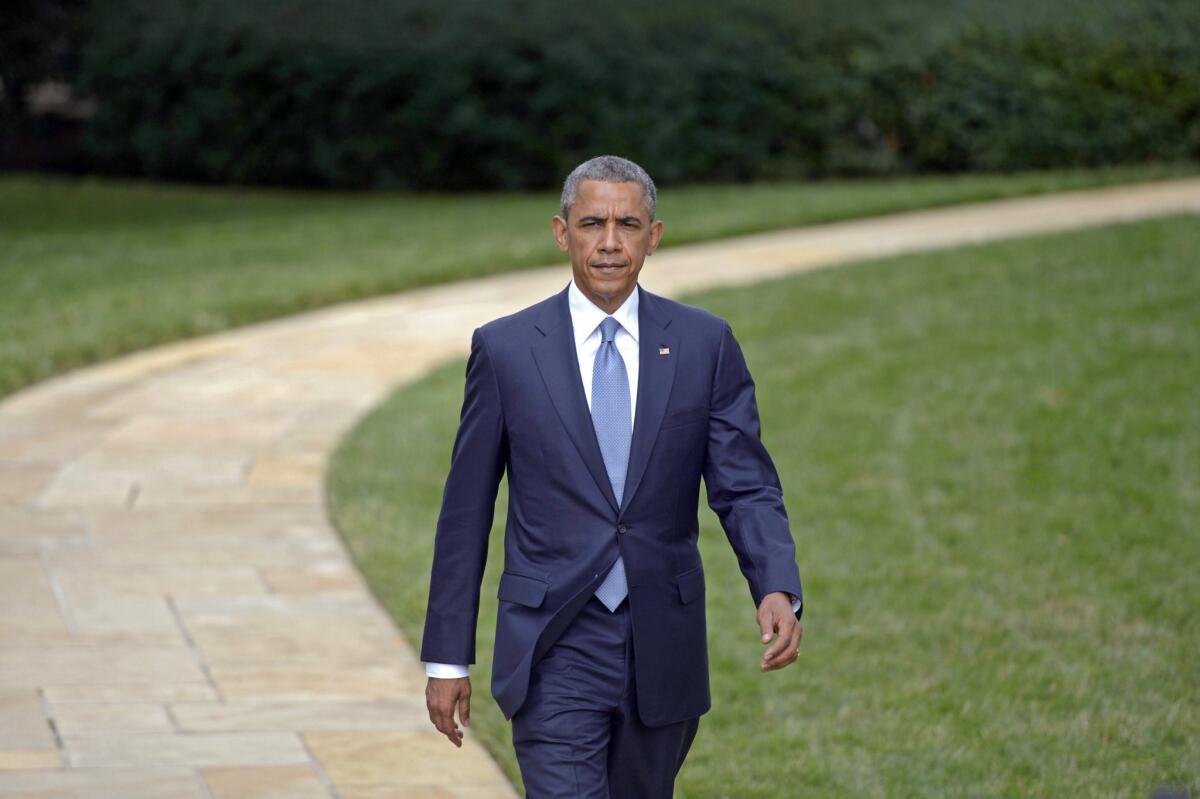Opinion: After MH17, questions of trust from Ron Paul and others

- Share via
In the days since the Malaysia Airlines Flight 17 tragedy, the big questions have been whether Russian President Vladimir Putin armed the separatists with the missile that left 298 innocent people dead, and whether the disaster will encourage Putin to reconsider his destabilization of Ukraine.
It’s also sparked a few other worthy questions:
Jason Biggs’ off-color ‘joke’ aside, can we trust Malaysia Airlines?
“Almost as soon as the news broke … people began to ask: What was a commercial aircraft doing over a conflict zone in the first place? Was this disaster somehow the airline’s fault? The answer is no — but to understand why, you have to look at the complex realities of modern commercial aviation,” writes James Fallows in a New York Times op-ed article that describes how aviation works and defends Malaysia Airlines. “They were neither cutting it razor-close nor bending the rules.”
Fallows argues: “After each crash, disaster or terrorist episode, it is natural to point fingers and say, Why didn’t we foresee that specific threat? Thus one attempted shoe bombing leads to a decade of shoes-off orders in security lines. The truth is that air transportation, like most other modern systems, could not operate if it fortified itself against every conceivable peril. Malaysia Airlines, its crew and passengers and the civil aviation system are the objects of this crime and tragedy. The finger-pointing should not be at them, but at the criminals.”
We have reason to question Russia’s media coverage of MH17, but what Ron Paul wants to know: Can we trust the U.S.’ mainstream media coverage?
“Just days after the tragic crash of a Malaysian Airlines flight over eastern Ukraine, Western politicians and media joined together to gain the maximum propaganda value from the disaster,” writes Ron Paul in his Texas Straight Talk column on the Ron Paul Institute website, listing the many things he argues the mainstream media has failed to report. He concludes: “Of course it is entirely possible that the Obama administration and the US media has it right this time, and Russia or the separatists in eastern Ukraine either purposely or inadvertently shot down this aircraft. The real point is, it’s very difficult to get accurate information so everybody engages in propaganda. At this point it would be unwise to say the Russians did it, the Ukrainian government did it, or the rebels did it. Is it so hard to simply demand a real investigation?”
Will Thursday’s tragedy sober up our politicians?
“Partisanship — defined as vigorous, principled disagreement — has an honored place in democracy. We are in the midst of such a debate over foreign policy in both parties,” writes Washington Post opinion writer E.J. Dionne Jr. “That’s good. What’s not good is the habit of Obama’s foes to make every foreign policy crisis about him, whether it is or not.”
“Tragedies concentrate the mind,” Dionne writes in the opening of his piece. Now he wonders whether we can move beyond the “unserious and trivial trajectory” politicians were on when the crash happened.
“Obama must match his clarity about the limits on what the United States can do militarily with equal clarity about what the United States is doing and will do to create a modestly less dangerous world,” he argues. “This crisis is an occasion for Obama to try to create an oasis of consensus at a time when our politics is allergic to the very idea.”
Follow Alexandra Le Tellier on Twitter @alexletellier
More to Read
A cure for the common opinion
Get thought-provoking perspectives with our weekly newsletter.
You may occasionally receive promotional content from the Los Angeles Times.











